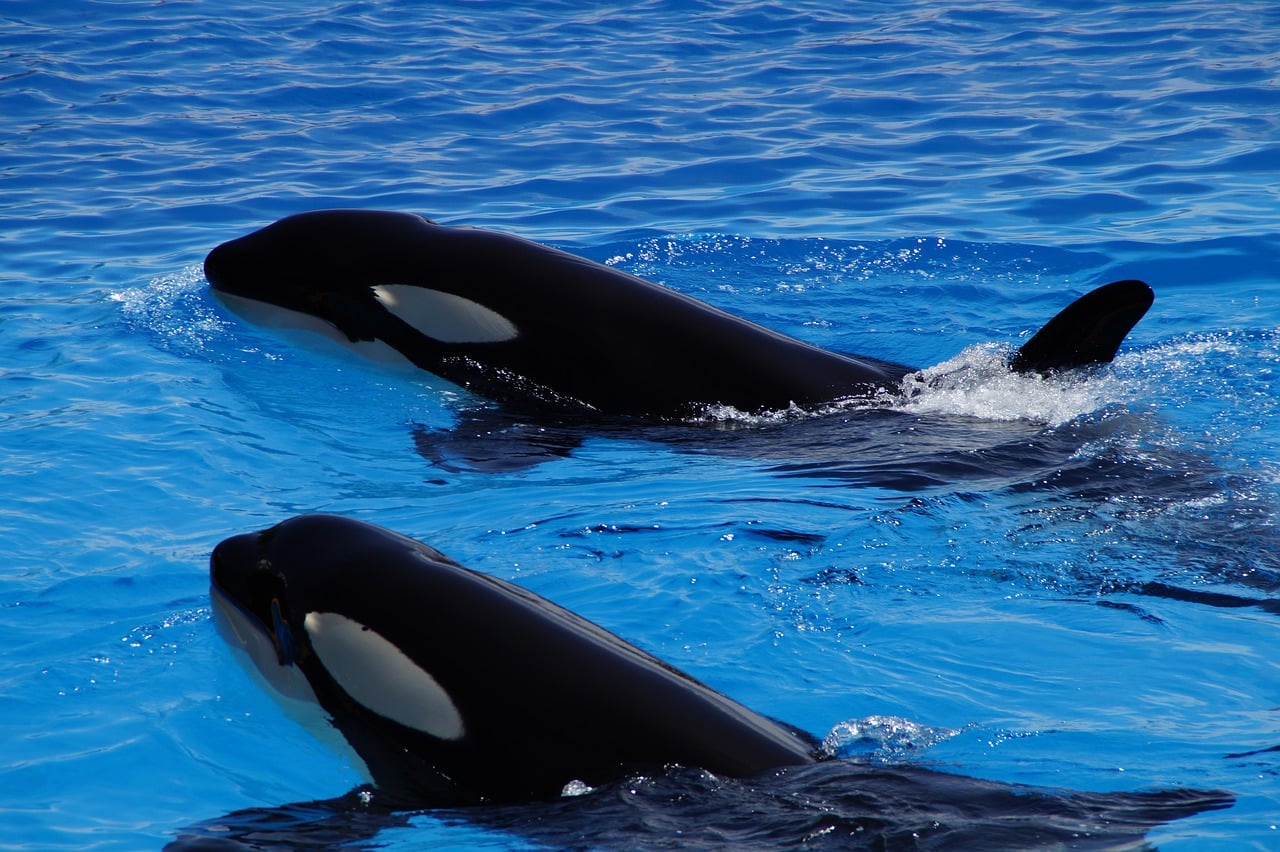Researchers have trained an orca whale named Wikie to mimic human speech, making her one of the first mammals to accomplish the feat.
Speech From an Orca
While developed speech is a trait unique to humans, there are a number of animals that can mimic human speech. Parrots, covids, and other birds are known to “parrot” speech back to humans, but the orca whale Wikie has become one of the first mammals to do the same.
Forbes reports that according to the study published today, an orca whale named Wikie has started to mimic human speech. Born in captivity at Marineland in Antibes, France, the orca has been recorded repeating the words ‘hello’ and ‘bye bye’, saying the name of her trainer ‘Amy’, and even counting up to three.
The researchers wrote in their paper that “Although the ability to copy sounds from conspecifics is wide-spread [sic] in birds, it is strikingly rare in mammals, and among primates it is uniquely human.”
Although the orca Wikie’s ability to mimic human speech is perhaps the most notable takeaway from this study, she has also been observed twittering like a bird, squawking like a parrot, and even blowing raspberries – which Forbes reports she is particularly fond of.
The ability of this orca to produce human sounds is especially significant due to the species’ anatomy. Whales create sounds by producing bursts of air that pass through their nasal passages. Humans, on the other hand, rely on the larynx and a number of other structures such as the tongue and lips in order to speak. The orca speech is the equivalent of us blowing our noses, so the fact that Wikie was able to mimic human words with such accuracy is an interesting phenomenon.
The other member of the Cetacean group, dolphins, have already been observed learning and producing specific sounds. Humpback whales have already been observed doing the same thing, but orca calls are not inherited genetically. Current evidence points to the idea that orca calls are influenced by their environment. In the past, orcas have been observed imitating sea lions, belugas, and some dolphins. Whales also have different accents based on their pod that are very different from the vocalizations of other groups of whales. As such, it seems that the orca is mimicking the human voice in much the same way as a wild orca would take on the affectations of a different species.
The Study Process
In order to train the orca to repeat sounds, Wikie was first taught a signal to “copy” certain behaviors. 11 different sounds were given by her trainer, including human words, a wolf howl, a creaking door, and an elephant call. After producing these sounds successfully, she was recorded and six judges were asked whether her sounds matched the original noise. It was found that three of her words were a “high-quality match,” which is especially significant given the fact that Wikie is an adult of 14 years old and had already developed her accent.
In an email to Forbes, José Abramson, a postdoc at the university while the work was done, stated that “It means that killer whales have evolved the ability to control sound production and qualify as open-ended vocal learners as other cetaceans like belugas and bottlenose dolphins…Our results lend experimental support to the hypothesis that the dialects observed in natural populations of this species can be socially learned by imitation.”





